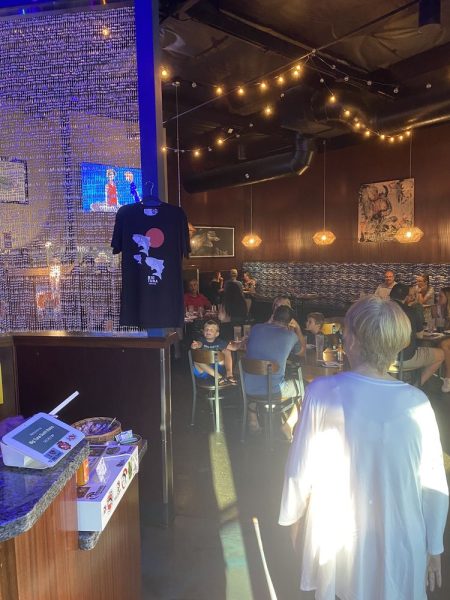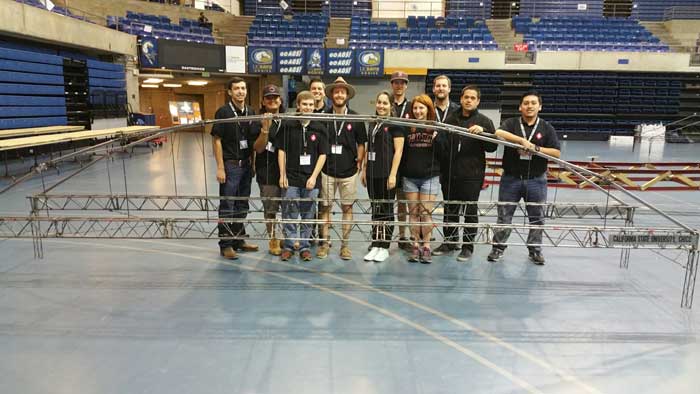Published 2011-04-11T21:12:00Z”/>
Hailey Vincent
It’s the beginning of the month and undeclared sophomore Blake Morrow had $120 left in his bank account. His rent was due, but instead he chose to spend what he had left on “extra-curricular activities.”
“It was supposed to go to rent, but then I went shopping instead,” he said. “I don’t drop a dime on much besides alcohol, tobacco and eating out – but I spend a lot on those things.”
College students are said to be spending 40 percent of their budget on discretionary items alone, according to a breakdown of the average student’s budget done by Westwood College.
The rest of student’s money is broken down as 26 percent toward room and board, 19 percent going to tuition and fees, 4 percent to books and supplies, 3 percent toward transportation and 8 percent goes to other expenses such as health care, according to the Westwood College report.
While harmful to the student budget, businesses that specialize in discretionary items do well in the college setting.
Tammy Hiller, owner of Party Town on East 20th Street, had to learn the terminology of party themes in order to accommodate one of her largest clients, the college crowd, she said.
“I order product to cater to them,” Hiller said.
With the demand of college students purchasing items for themed parties, Hiller has had to expand her 21st birthday section and add in product for themes like jungle parties, “ABC” parties where students wear anything but clothes, “Heaven and Hell” and the increasingly popular stoplight party – where party-goers wear red if they are in a relationship and green if they are single, she said.
To go along with party decorations, alcohol is a significant item purchased for discretionary purposes, said Brittney Weltz, a junior health science major.
“I like to have fun,” she said. “But it’s money that could be used toward bills.”
While purchasing items for themed parties may be unnecessary, it is beneficial when it comes to having fun, said Sydney Blatt, a junior majoring in nutrition.
“It’s part of the culture,” she said.
Alcohol is a waste of money, but it is always in demand, said Amy Glavich, a junior agriculture major.
“Whenever I go to Safeway, people are buying alcohol,” she said.
Being on a tight budget, Glavich conserves her money well, but sees people spending money on useless things like trendy items, clothes and unnecessary eating out at restaurants a lot, she said.
One of the largest areas students could be saving money on is not eating out so much said Michaela Reed, a junior exercise physiology major said.
“Eating out a lot is what gets me,” she said. “Damn T. Bar. I always go back.”
Along with spending money on expensive food, shopping for clothes is a way that students constantly waste money, Reed said.
“Some girls definitely have a shopping obsession that wastes money,” she said. “And people are always wasting money buying representative T-shirts and trends that they buy to fit in.”
Others that do not buy into trends, still waste their money in more excessive ways on the college basics of partying, Morrow said.
“I save my money by not being trendy,” he said. “But then I spend it all on partying.”
Students are encouraged to keep track of expenditures to help budget themselves, said Frederica Shockley, chair of the economics department.
“The first thing students should do is get a spreadsheet and list out the obligations they have each month,” she said. “Then they should add on how much they plan to spend on extra things like gasoline or eating out.”
With the cost of tuition rising, students may struggle with their budget and should evaluate how they spend their money, Shockley said.
“People are rational and should be allowed to make decisions that satisfy them,” she said. “Information is power though and students need to analyze what they are spending.”
When rent was due, Morrow had to resort to selling his fishing pole in order to make rent, he said. He regretted his shopping spree.
<hr />
<strong>Hailey Vincent can be reached at</strong>
<em>[email protected]</em>













